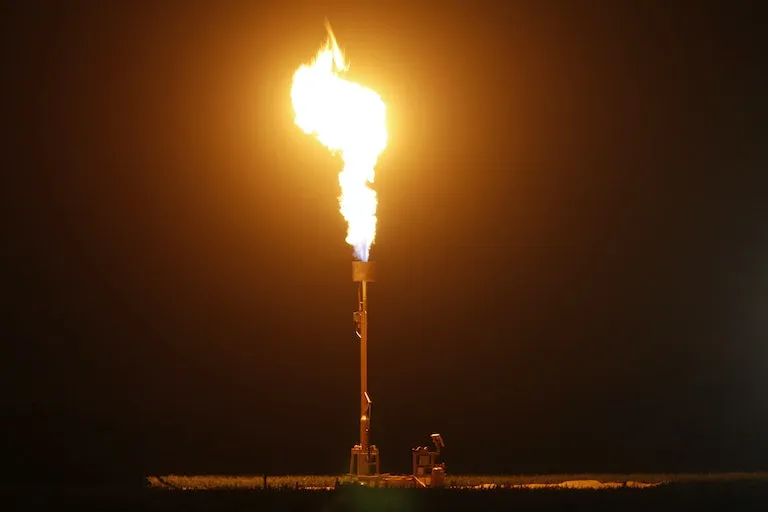Warm weather and high gas levels in storage in Europe and elsewhere have led to a decline in natural-gas prices this year. A million British thermal units are now worth $2.46 in the U.S., down 45% from last year.
Several natural-gas producers have been impacted by the decline, but not nearly as much as the commodity itself. It is likely that a wide range of companies will be affected as long as natural gas prices remain low. Also impacted by the decline are the stocks of oil producers that produce significant quantities of gas. According to Citi analyst Scott Gruber, large-cap producers could see free cash flow decline by 33% from 2022 levels. Many oil companies could not boost dividends and buybacks as much as they did last year because of that.
Several companies will have problems with free cash flow due to the drop, according to Gruber. Coterra Energy CTRA +0.26% (CTRA), Ovintiv OVV –0.92% (OVV), EOG Resources EOG –0.52% (EOG), and Devon Energy DVN +0.47% (DVN) are among oil producers with significant revenues from natural gas and natural gas liquids. Coterra's revenue is mainly derived from oil, while Ovintiv's comes from 45%, EOG's from 72%, and Devon's from 73%.
According to Citi, natural gas prices will average $2.70 this year, and $3 in 2024, after briefly rising above $9 per million BTU last year. As a result of the lack of access to their own supplies, Europeans and Asians are expected to pay higher prices for natural gas. The European Union could pay an average of $25 per million BTUs this year, for example. It is therefore possible that companies that have more access to European markets are in better shape.
Gruber selected which operators might be most resilient to lower natural-gas prices in light of the fourth quarter earnings reports scheduled to be released this week and next. The CEO examined free cash flow yields specifically, which measure how much free cash flow a company is expected to generate per share versus its share price.
More than three-quarters of Marathon Oil's revenue is generated from oil, making it one of the companies with resilient free cash flow. Based on Gruber's projections, Marathon will yield 13.5% free cash flow this year.
Additionally, APA (APA), an offshore and onshore oil producer with operations around the world, ranks highly on Gruber's list. Based on his estimates, the company's free-cash-flow yield is expected to be 12%. It is likely that APA will continue to buy back shares at a rapid rate due to its exposure to international natural-gas prices.
Depending on its oil weighting, Diamondback Energy (FANG) can yield 11% as well.
It may not be easy for smaller names to achieve 18.3% yields, but Gruber believes Chord Energy (CHRD) may succeed in doing so.
While cash-flow levels may decline sharply from those of 2022, others are likely to face sharp declines. A large percentage of Coterra's free cash flow is at risk due to the company's dependence on U.S. natural gas prices.
In the event of a price drop, Ovintiv could be unable to cover its dividends and buybacks, and its yield would drop to 8%. Gruber wrote that even though the impact of lower gas prices will be felt on EOG's cash flow, overall the company's cash flow should remain "resilient."
In this case, Devon's yield could fall to roughly 8%, which means that less money will be available to pay dividends to shareholders. Last year, Devon particularly attracted investors due to its variable dividends as well as its double-digit dividend yields. The company, however, will continue to buy back shares, according to Gruber.

Subscribe to our newsletter!
As a leading independent research provider, TradeAlgo keeps you connected from anywhere.








